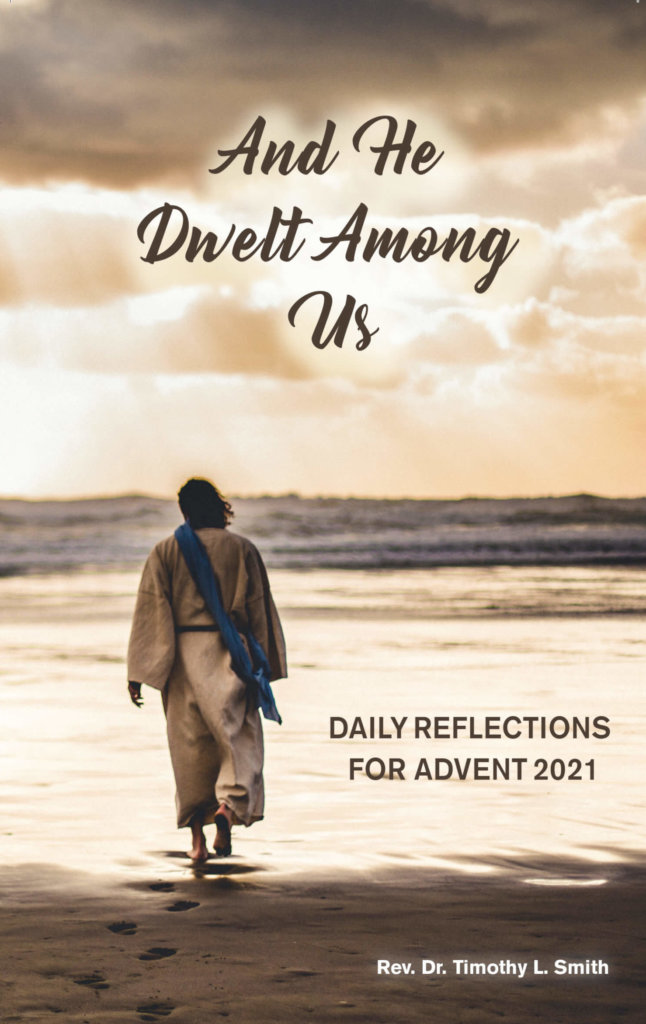PRAYER
Take a moment to become still, aware of God’s presence, and then pray:
O God the Father of our Lord Jesus Christ, we long to know yet more of your boundless love and grace. Beyond the written word we seek the living Word, Jesus. Reveal to us by Your Spirit the glories of Your incarnate Son so that we might more perfectly love and follow Him. Amen
REFLECTION
When Mary came where Jesus was and saw him, she knelt at his feet and said to him, “Lord, if you had been here, my brother would not have died.” When Jesus saw her weeping, and the Jews who came with her also weeping, he was greatly disturbed in spirit and deeply moved. He said, “Where have you laid him?” They said to him, “Lord, come and see.” Jesus began to weep.
John 11:32-35
It was Christmas of 1918. The horror of the Great War, the First World War, along with the rapidly spreading second wave of Spanish Flu, darkened everyday life. At King’s College, Cambridge University, it was too early to know how many students were alive or dead. But in the midst of all this, it was on Christmas Eve that the “Service of Nine Lessons and Carols” was first read and sung, thus establishing a beloved Christmas tradition.
An army and college chaplain, Eric Milner-White, began the Christmas Eve service wanting to both grieve the lost as well as encourage worshippers with what he called “the development of the loving purposes of God…through the windows and the words of the Bible.” The “Bidding Prayer” of that service has lines that seem appropriate for our troubled times:
“Let us remember, in His name, the poor and helpless, the cold, the hungry, and the oppressed; the sick and them that mourn, the lonely and the unloved, the aged and the little children; all those who know not the Lord Jesus, or who love Him not, or who by sin have grieved His heart of love. Lastly, let us remember before God all those who rejoice with us, but upon another shore, and in a greater light, that multitude which no man can number whose hope was in the Word made flesh, and with those whom in the Lord Jesus we are forever one.”
Today’s scripture speaks to any who are poor, helpless, cold, hungry, and mourning, as it reveals Jesus grieving and disturbed at the grave of His close friend, Lazarus. It is a scene that brings a lump to the throat. Trips to the cemetery are always difficult, and Jesus’ emotions are like those we experience and see in others.
Jesus is in greater emotional turmoil than what might appear in English translations. The phrase “greatly disturbed” (Greek: enebrimesato) invariably describes anger and outrage, just the feelings often experienced in the face of loss and trauma. The Greek word is used in non-Biblical texts of an animal snorting or growling, suggestive of outer movements in Jesus’ disturbance. The contemporary translation, The Message, renders the phrase, “a deep anger welled up within him.”
Martha, the sister of Lazarus, had just testified to Jesus’ divinity, calling Him “Lord”, but now His noticeable feelings also witness to His humanity. Others see Jesus’ grief and outrage saying, “See how he loved him” (John 11:36).
But Jesus’ grief and disturbance seem not just about the loss of His friend Lazarus, because He will soon restore Lazarus to life. Rather, we see Jesus weeping with all those who weep, feeling even our pain and confusion. He is angered at death, the consequence of the Fall that has penetrated His innermost circle. Jesus weeps and groans as He sees in Lazarus’ body the whole of humanity’s misery, from Adam weeping over Abel’s body to the ‘white robed army of martyrs.’ If Edvard Munch’s painting, “The Scream”, had a voice, it would be that of Jesus. He is fiercely facing down that unspeakable enemy, death, which He has come to vanquish. John Calvin comments on Jesus being so visibly moved:
“Accordingly, when He is about to raise Lazarus, before granting deliverance or aid, by the groaning of His spirit, by a strong feeling of grief, and by tears, He shows that He is as much afflicted by our distresses as if He had endured them in His own person.”
(John Calvin, Commentary on John)
Today’s scripture reminds that the Word did become flesh and dwelt among us. So that in the Man, Christ Jesus, we have a High Priest who feels with all the feelings of our infirmities, even to death, and gives grace in time of need (Hebrews 4:15-16).
WORSHIP
Think back over the past 24 hours and note when you experienced a “high” and a “low”. Share with God how the humanity of Jesus might speak to you in what you experienced.



